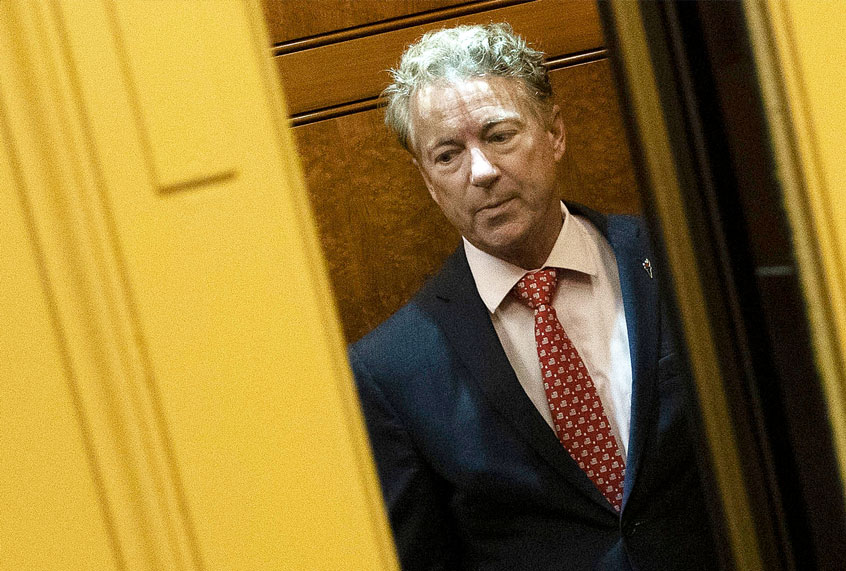Numerous Republican lawmakers criticized President Donald Trump’s false claim that the Constitution gives him “total” authority to decide when states should lift coronavirus restrictions.
Trump, who refused to issue a nationwide “stay at home” order and demanded that states fend for themselves as they struggled to secure critical medical supplies, wrongly declared Monday that he could overrule governors who may push back on his plan to reopen the economy in the near future.
“When somebody’s president of the United States, the authority is total,” Trump falsely claimed. “And that’s the way it’s got to to be. It’s total. It’s total — and the governors know that.”
Trump went on to bizarrely claim that governors “can’t do anything without approval of the president of the United States,” even though every state acted on its own in imposing “stay at home” orders and purchasing medical supplies.
Sen. Rand Paul, R-Ky., a libertarian-leaning Trump ally, rejected the president’s view.
“The constitution doesn’t allow the federal gov’t to become the ultimate regulator of our lives because they wave a doctor’s note,” he tweeted. “Powers not delegated are RESERVED to states & the PEOPLE. If we dispense with constitutional restraints, we will have more to worry about than a virus.”
Rep. Liz Cheney, R-Wyo., the daughter of former Vice President Dick Cheney, also criticized the president’s claim.
“The federal government does not have absolute power,” Cheney wrote. “‘The powers not delegated to the United States by the Constitution, nor prohibited by it to the States, are reserved to the States respectively, or to the people.’ United States Constitution, Amendment X.”
Sen. Marco Rubio, R-Fla., said the call on how and when to ease restrictions “should & will be made by Governors.”
“The Constitution & common sense dictates these decisions be made at the state level,” he added.
George Washington University Law Professor Jonathan Turley, the lone legal scholar who testified in Trump’s defense during the impeachment proceedings, said the Constitution is explicitly aimed at preventing the type of absolute power described by the president.
“The Constitution was written precisely the deny that particular claim,” he tweeted. “It also reserved to the states (& individuals) rights not expressly given to the federal government.”
New York Gov. Andrew Cuomo, a Democrat leading a coalition of a half-dozen northeastern states in coordinating their plans to reopen the economy, slammed the president for trying to become a dictator.
“We don’t have a king in this country,” Cuomo said Tuesday at his daily briefing. “We didn’t want a king, so we have a Constitution. And we elect a president.”
“The president is clearly spoiling for a fight on this issue. The worst thing we can do in all of this is start with political division,” Cuomo said. “I will not engage. I look forward to working with the president in partnership and cooperation, but he has no fight here. I won’t let it happen.”
Cuomo told CNN that he would ignore the president’s order if Trump demanded that New York reopen sooner than ready.
“If he ordered me to reopen in a way that would endanger the public health of the people of my state, I wouldn’t do it,” he said.
The governor added that he would sue the Trump administration if it attempted to impose the president’s will on the state.
“We would have a constitutional challenge between the state and the federal government — and that would go into the courts,” he said. “And that would be the worst possible thing he could do at this moment — would be to act dictatorial and to act in a partisan, divisive way.”

